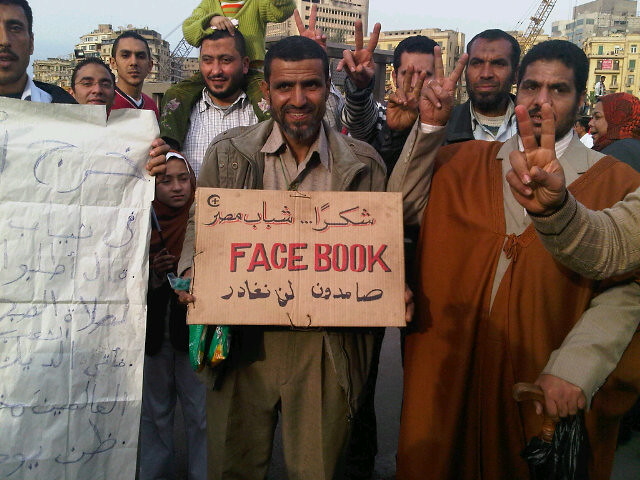This book aims to show how media have been used for good and bad—to trigger genocide, but also to effectively prevent conflict, facilitate free elections, expose corruption, promote nation-building, provide critical information amid natural disasters, and bring about massive social change such as free education and women’s rights. César Jiménez-Martínez feels that this will be useful for undergraduate or A Level students as a starting point for the exploration of debates regarding the role of the media on issues of development, natural disasters, or conflicts.
Citizens Rising: Independent Journalism and the Spread of Democracy. David Hoffman. CUNY Journalism Press. September 2013.
During the last thirty years, American journalist and activist David Hoffman has been the most visible figure of Internews: a non-profit organisation created in California that works to support independent media in developing countries. As president emeritus and one of the founders of Internews, Hoffman has had the opportunity to be directly involved in different projects in Eastern Europe, Asia, Africa and Latin America. These projects have included the provision of legal advice, supply of technology, or training of journalists for local media.
Some of these experiences are described in Citizens Rising: Independent Journalism and the Spread of Democracy. While it claims to be ‘the first book presenting a comprehensive look at the emergence of the media as a primary actor, and not merely an observer, of global affairs’, any media scholar would quickly dismiss this statement, particularly when looking at the vast scholarship concerned with issues such as media and globalisation, political communication, or media and development. Instead, Citizens Rising reads as a summary of some of the work conducted by Internews throughout the world in the last few decades.
Focusing on cases from the Soviet Union, Afghanistan, Pakistan, Rwanda, and China, among others, the book explores the role of local media organisations during episodes of war, political unrest, natural disasters, or as potential tools for development. The tone of the chapters varies. Some abound with personal anecdotes, such as Hoffman’s description of a journey through Afghanistan during which Internews was providing support to independently owned radio stations, or his personal involvement in the series Capital to Capital, which in the late 1980s broadcasted live discussions between members of the American Congress and the Soviet Parliament made possible thanks to satellite television. Other chapters adopt a more distant perspective and appear to be a general summary of the political situation of a country, such as the chapter dedicated to Myanmar. A third group of chapters focus on the struggles confronted by particular individuals when trying to use the media to foster development or political changes in their localities, for example, Bitange Ndemo in Kenya or Wael Ghonim in Egypt.
Thanks to the personal involvement of Hoffman and the accounts of local activists, some of these chapters illuminate interesting (although not necessarily new) details about the challenges confronted by these individuals when attempting to use the media to advance political or social goals. For instance, in the aforementioned case of Bitange Ndemo, the book explores the different strategies followed by Ndemo to overcome the bureaucracy of the Kenyan government and force it to become more transparent through the use of digital tools. Similarly, the Egyptian revolution of 2011 is told from the perspective of one of the administrators of the Facebook group ‘We are Khaled Saeed’, describing how that page gradually became a tool which contributed to the mobilization of people in the country.

Using examples from Rwanda and the Balkan war, the book gives some perspectives regarding how the media can also be used to foster conflict and violence. Nonetheless, in most cases, Hoffman does not hide his optimism towards the role that journalism and the media can play in improving the lives of people all over the world. This kind of optimism is not new and can already be found in early accounts about the potentiality of the telegraph to bring peace and understanding to people. Unfortunately, these observations tend to fall into extremely simplistic portrayals regarding the role of the media in contemporary societies, and Citizens Rising does not escape this pitfall.
In the introduction, Hoffman warns that ‘it is easy to make a fetish of technology’, and he claims that ‘it is people who make the difference’. However, the book still falls into a type of techno-determinism, assuming that the mere introduction of a specific technology and an increase in the availability of information per se would strengthen democracy and bring development. There is little exploration into the structural political, social or economic constraints that may prevent these changes happening and there is also a lack of reflection regarding the type of development promoted by media organisations, which, as David Harvey has pointed out, in many occasions have been the instrument of the upper classes to push neoliberal agendas. Inevitably, this also raises questions about the work of Internews. On several instances, Hoffman highlights how Internews has tried to spread values such as ‘objectivity’ or ‘impartiality’ into local media organisations. But these values originate in Anglo-American contexts and there is little reflection concerning how locals receive them and adapt to them, whether they clash with previous traditions, or if there might be alternative local perspectives towards the media that might be worthwhile to encourage.
Perhaps, the most accomplished chapter is the one dedicated to natural disasters, particularly the section concerning the earthquake of 2010 in Haiti. In this case, the focus is not so much on the experiences of Hoffman or specific activists, but rather on what people can do with the media technologies available at their disposition, such as mobile phones and local radios. In addition, this chapter provides a much more complex picture, exploring the limits of the media in these situations, and how Haitians could not properly communicate some of their needs to international relief organisations due to the lack of coordination of the latter.
It is my feeling that Citizens Rising: Independent Journalism and the Spread of Democracy would perhaps not be of interest to media and communication scholars. However, it could be useful for undergraduate or A level students, as a starting point for the exploration of current relevant debates in the field, regarding the role of the media on issues of development, natural disasters or conflicts.
———————————-
César Jiménez-Martínez is a PhD candidate in Media and Communications at the London School of Economics. He is researching how competitive meanings of the nation struggle in the media. Previously, he worked for several years as a journalist for newspapers and television in Chile, and he holds and MSc in Global Media and Communications from the London School of Economics and the University of Southern California. Read more reviews by César.






